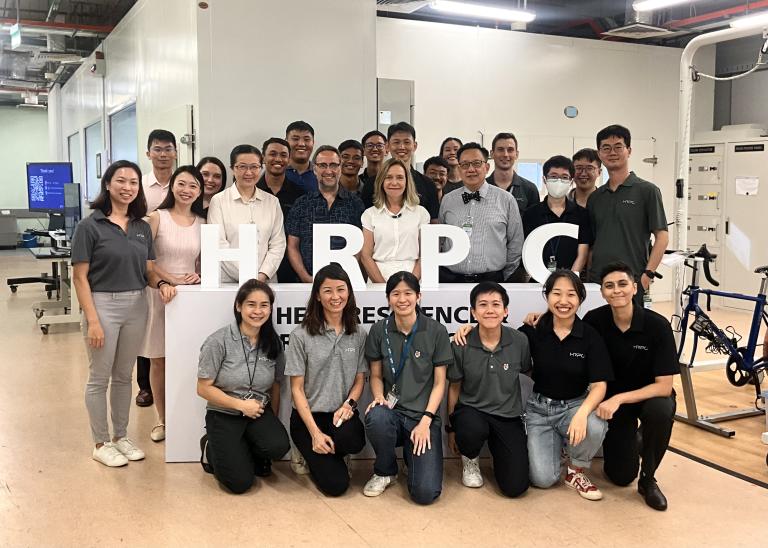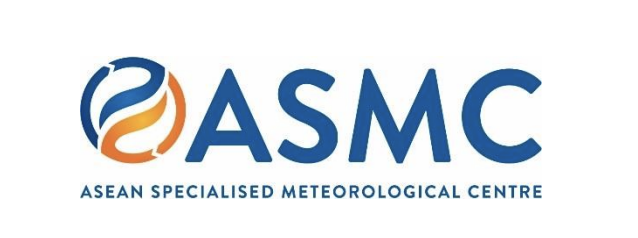Towards a weather-ready and climate resilient ASEAN
In the face of growing challenges from climate change, extreme weather and environmental hazards in Southeast Asia, a regional conference is exploring how to strengthen adaptation and resilience.

The Association of Southeast Asian Nations (ASEAN) Specialised Meteorological Centre (ASMC) and the World Meteorological Organization (WMO) have convened the regional forum in Singapore from 4 to 6 September 2024, supported by the Meteorological Service of Singapore.
“From food security to heat resilience, climate services provide critical information that help build the region’s resilience to climate change, often involving collaboration among stakeholders across borders. The ASMC-WMO Regional Forum provides a useful and timely platform for participants to share insights, gain better informed decision-making and enhance our preparedness for climate change and extreme weather events,” said Minister for Sustainability and the Environment and Minister-in-charge of Trade Relations, Singapore, Ms Grace Fu.
Minister Fu also announced that Singapore has been officially designated as a WMO Regional Specialised Meteorological Centre for Vegetation Fire and Smoke Pollution forecasts (RSMC–VFSP) following the recent approval by the WMO Executive Council.
The forum provides a platform to consolidate knowledge, share best practices and enhance the region’s overall resilience against extreme weather and climate change-related hazards. Participants will have the opportunity to discuss how climate services can better serve their adaptation needs at the regional, national and local levels with detailed climate information and impact assessments.
The forum brings together experts from across the climate services value chain. This includes national and regional climate service providers, as well as adaptation practitioners and end-users in climate-sensitive sectors from Southeast Asia and beyond. They will discuss related climate issues including the impact of climate change on food security and heat health, urban planning and coastal protection in the region, the tools available for addressing these challenges, and how climate change scenarios can be integrated into long-term planning as an adaptation strategy.
Participants will also explore how early warning systems for hazardous weather and climate events can be leveraged as a key adaptive measure in an already warming climate and how to gather regional support to accelerate the global Early Warnings For All (EW4All) initiative.
“WMO is committed to working with the ASEAN Specialized Meteorological Centre to strengthen weather and climate services in the region and ensure all people everywhere are protected by life-saving early warning systems,” said WMO Secretary-General, Prof Celeste Saulo.
State of the Climate
The urgent need for better climate services was underlined by WMO’s recent reports on the State of the Climate in the South-West Pacific and in Asia showed that climate change is intensifying at an alarming rate in Southeast Asia and the South-West Pacific, with temperatures and sea-level rise exceeding global averages, and with a knock-on effect on health, food and water security.
“Although most reported losses reported in the State of the Climate reports are water-related, we know that extreme heat is rapidly becoming a deadly problem. Thus, for instance, a major and prolonged heatwave affected much of Southeast Asia in April and May 2023, with new maximum temperature records. And the same pattern was repeated again in 2024,” said Celeste Saulo.

Heat resilience
The WMO Secretary-General visited the Heat Resilience & Performance Centre at the NUS Yong Loo Lin School of Medicine and was briefed on ongoing research efforts and regional initiatives, such as the establishment of the Southeast Asia Heat Health Hub.
The visit demonstrated the unique perspective human physiology brings to the climate conversation and highlighted the need for a deeper understanding of the complex impacts of heat on human health.
She observed a demonstration of a continuous remote physiological monitoring system in a climatic chamber set at 40°C and 45% relative humidity. She experienced firsthand the projected mid-century weather conditions for Singapore and felt the exertional heat strain on the body while walking on the treadmill. The demonstration then showcased Virtual Reality experiences from recent studies on task performance and risk-taking behavior under heat stress.
“What you are doing is critically important… The world will be exposed to high temperatures unfortunately, and… you are working hard to increase the resilience of human beings, to understand how to better live in our homeplace… You are not just moving science ahead, but you are really human centred in your approach to science. This is how we help human beings to make better choices. Together with all other specialties that you have here, the approach is very interdisciplinary and transdisciplinary, bringing the Western and Eastern traditional knowledge. I am fascinated by your work and WMO really thanks you… I appreciate your efforts at the frontline of science - a science for servicing the people.” said Celeste Saulo in her closing remarks.
She was welcomed by HRPC Director Prof Jason Lee and NUS Deputy President (Research and Technology) Prof. Liu Bin and Dean of NUSMed Prof. Chong Yap Seng.
Regional Specialized Meteorological Centre for Vegetation Fire and Smoke Pollution Forecasts
The designation of Singapore as a WMO Regional Specialised Meteorological Centre for Vegetation Fire and Smoke Pollution forecasts (RSMC–VFSP) is in line with Singapore’s ongoing efforts to support the Southeast Asian region’s ability to address climate and environmental challenges.
The RSMC-VFSP (Singapore) is one of the first two of such WMO regional centres worldwide that were established to deliver timely and quality vegetation fire and smoke pollution forecasts, observations, information and knowledge to users through an international partnership of research and operational communities. Hosted by the Meteorological Service of Singapore, the centre will enhance the region’s ability to manage the effects of vegetation fires and smoke pollution in the region, by providing operational information and products on regional vegetation fires and smoke pollution to the region.
It will conduct atmospheric smoke haze dispersion modelling and provide forecast products to advise on fire activity and surface concentration of pollutants originating from fires in the region. The centre will provide data and information that is relevant and helpful for specific national agencies responsible for the environment, public health, fire management and enforcement. These data and information include dispersion model forecasts, satellite images and hotspots, as well as fire risk and subseasonal outlook products which are provided through a public website.
Minister Fu said, “The designation of Singapore as the RSMC-VFSP was a culmination of over three decades of support to the Southeast Asia region in the areas of fires and haze monitoring, assessment and early warning under the ASMC.”
Such RSMCs are part of the WMO Integrated Processing and Prediction System (WIPPS), a worldwide network of operational centres operated by WMO Members that make defined products and services operationally available. These efforts are facilitated by the WMO Information System (WIS), which supports international data exchange.
More information on the smoke haze dispersion modelling products that will be offered through the RSMC-VFSP (Singapore)
Further information on the EW4All Initiative











